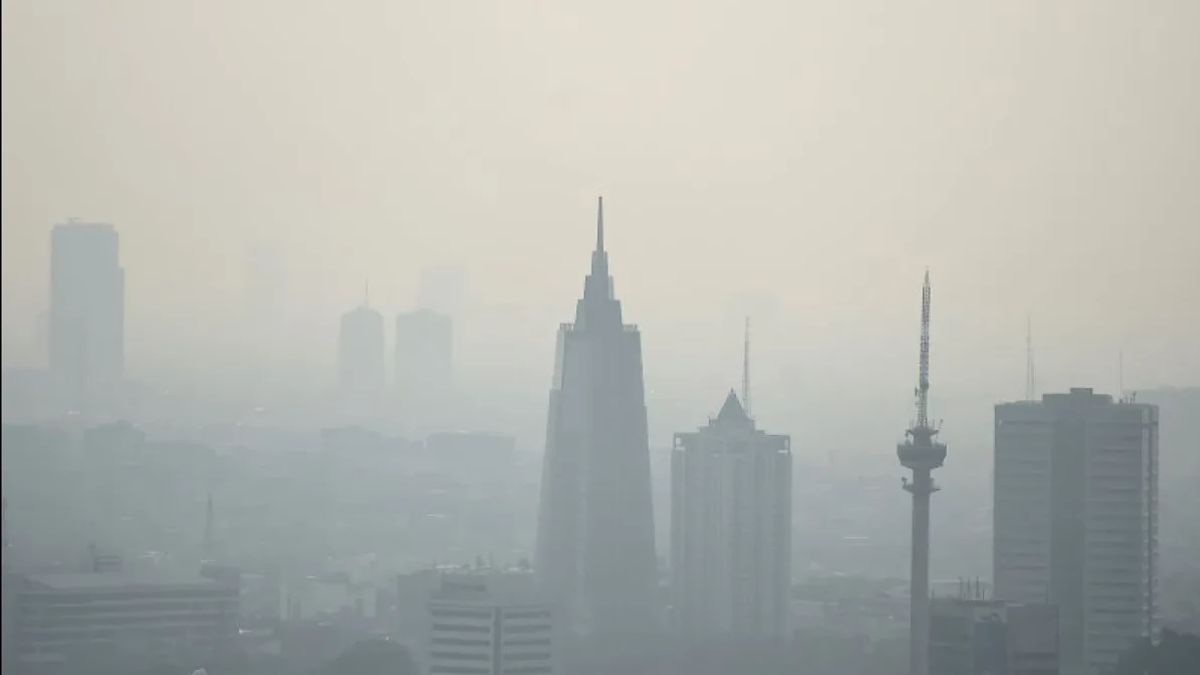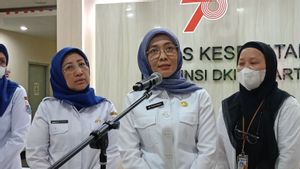JAKARTA - The DKI Jakarta Health Office revealed that cases of disease due to air pollution in the capital city were not included in the emergency category because the trend of cases did not increase dramatically but fluctuated.
"If you look at the data on diseases caused by air pollution, so far it has not been categorized as an emergency," said Acting Head of the DKI Jakarta Health Office Ani Ruspitawati, quoted by ANTARA, Wednesday, August 16.
Ani said, based on data from the DKI Jakarta Health Office, the trend of cases of Acute Respiratory Channel Infection (ARI) or other respiratory diseases did not increase dramatically.
"Identical data on diseases related to unhealthy air quality, namely ISPA, pneumonia, asthma and others, in general I can convey, for 2023, the trend of illness is no different from the number of cases before the pandemic," said Ani.
In 2020 and 2021 during the COVID-19 pandemic, the morbidity rate has decreased relatively. But in 2023, the trend of morbidity is still relatively the same compared to 2018 and 2019 or before the pandemic.
Therefore, according to Ani, the disease number did not experience any significant changes, but it was still up and down due to being affected by weather conditions.
"Tren is usually high at the beginning of the year. Now it's not too low because the dry season is a bit long," he said.
Because of the climate change, according to him, the pattern of the disease has changed somewhat. "So far we have been monitoring the number and movement of cases is still relatively normal, there has been no significant increase," said Ani.
For ISPA, the DKI Health Office (Dinkes) already has a reporting system to monitor infectious diseases that have the potential for outbreaks or non-communicable diseases.
A system that helps monitor and know the trend of infectious disease cases can become an early warning system so that the DKI Health Office can prepare anticipatory and preventive measures.
"From this data, for the ISISPA case in DKI Jakarta in 2023, the average is around 146,000 cases per month. This pattern is more or less the same as the conditions before COVID-19, namely in 2018-2019," said Ani.
As an effort to control and anticipate diseases due to unhealthy air quality, the DKI Health Office always implements promotive preventive measures (prevention promotions).
VOIR éGALEMENT:
One of them is providing education on Clean and Healthy Life Behavior (PHBS) to communities in various arrangements such as schools, residential environments and workplaces.
The PHBS in question is like not smoking, doing physical activity, eating healthy and nutritious food to increase immunity, washing hands with soap and managing stress.
In addition, implementing "re-use", "reduce" and "recycle", not burning garbage and calls for wearing masks in vulnerable groups and special health conditions.
The DKI Health Office also appealed to the public if they were not healthy, they should not be active outside the home.
"Even if we have to do activities (outside the home), try to use masks. We must be responsible for our own health and others around us," said Ani.
The English, Chinese, Japanese, Arabic, and French versions are automatically generated by the AI. So there may still be inaccuracies in translating, please always see Indonesian as our main language. (system supported by DigitalSiber.id)



















